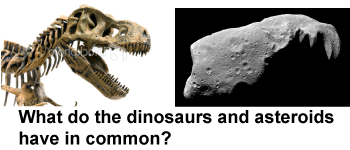|
Some scientific results are so profound that they can impact other scientists and society in ways that were never anticipated. Fundamental advances in science can challenge the assumptions of scientists and the public in general. New science encourages society to look at the world in a new light. 
|

|
In the scientific process, the results from one scientist’s research can often lead to discoveries by others. A good example of this is the development of our understanding of the origins of the universe, which we now know as the Big Bang model. Mathematician Georges Lemaître first proposed the Big Bang, while Ralph Alpher and Robert Herman expanded upon the theory to predict a temperature for the present-day universe. Arno Penzias and Robert Wilson serendipitously discovered that temperature in 1964, and then in 1992 George Smoot and John Mather discovered tiny variations in the temperature. All these results contributed to our present-day understanding of how the universe formed and has evolved. Each scientist built on the work of previous scientists to advance scientific thought. 
|
 Sometimes advances by scientists in one field can lead to scientific research in another—and impact society, too. A geological team led by Luis and Walter Alvarez found high concentrations of iridium in rock layers corresponding to the time when many dinosaurs went extinct. Since only asteroids contain that much iridium, the team theorized that the dinosaur extinction was caused by the impact of a massive asteroid. Many teams of astronomers are now hunting for observational evidence of near-Earth objects that could conceivably collide with the Earth, because we wouldn’t want to suffer the same fate as the dinosaurs. Some people ask, If we discover an asteroid on a collision course with Earth, then what should society do about it?
Sometimes advances by scientists in one field can lead to scientific research in another—and impact society, too. A geological team led by Luis and Walter Alvarez found high concentrations of iridium in rock layers corresponding to the time when many dinosaurs went extinct. Since only asteroids contain that much iridium, the team theorized that the dinosaur extinction was caused by the impact of a massive asteroid. Many teams of astronomers are now hunting for observational evidence of near-Earth objects that could conceivably collide with the Earth, because we wouldn’t want to suffer the same fate as the dinosaurs. Some people ask, If we discover an asteroid on a collision course with Earth, then what should society do about it? 
|
Many scientists are currently engaged in research on changes in Earth’s climate, such as global increases in temperature and rising sea levels. These scientific results have led to broad societal discussions about the impact of human activity on the Earth’s climate. The research has motivated many people to explore alternative energy sources that generate few or no carbon emissions, such as solar and wind power. 
|
| |
|

